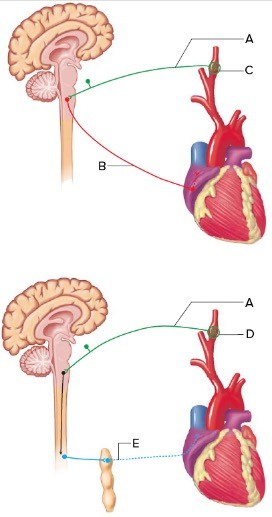A buffer will
A. have no effect on the pH of the solutions.
B. enhance changes in the pH of the solutions.
C. resist drastic changes in the pH of the solutions.
D. make a solution more basic.
E. make a solution more acidic.
Answer: C
You might also like to view...
When not combined with O2, hemoglobin is referred to as reduced hemoglobin, or deoxyhemoglobin
a. True b. False Indicate whether the statement is true or false
All of the following are parts of the axial skeleton EXCEPT the ________
A) sternum B) hyoid bone C) scapula D) vertebrae
The precentral gyrus ________
A) is a center for audition B) is the cortical area to which taste sensations come C) is a major motor area of the brain D) is important for somatosensation
 The figure illustrates the autonomic reflexes and the heart. What does "C" represent?
The figure illustrates the autonomic reflexes and the heart. What does "C" represent?
A. Vagus nerve B. Increase in blood pressure detected by carotid baroreceptors C. Decrease in blood pressure detected by carotid baroreceptors D. Glossopharyngeal nerve E. Sympathetic nerve